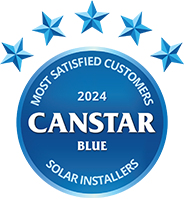Advertisement
Compare Solar Installer Quotes
Over the last 12 years SolarQuotes® has steadily built a network of heavily vetted solar installers. Get up to 3 free, no obligation quotes from highly-qualified installers.
It goes without saying that solar installation isn’t always black and white, with so many installation companies on the market claiming to have the cheapest prices and best service. If you’re a first-timer, it’s not always clear what your best options are. And that’s where we come in.
Canstar Blue has taken the guesswork out of choosing a good solar installer, by collecting the opinions of those that have already installed solar across Australia. We’ve asked them to rate their solar installer on variables such as customer service and advice provided, performance of solar system, installation process, durability and set-up cost, in order to help you find one that suits your needs. Please note while this review looks at seven of the most prominent installers in Australia, there may be other companies available in your area.
Canstar Blue surveyed 1,471 Australian households for their feedback on their solar panel installer. Respondents had to have solar panels at their property by a professional solar installation company in the last five years for their response to be eligible.
Respondents rate their satisfaction with their solar installer from zero to ten, where zero is extremely dissatisfied and ten is extremely satisfied. Provider satisfaction was rated by respondents on the following criteria:
The winning brand is the one that receives the highest Overall satisfaction rating once all the scores from the Overall satisfaction criteria are combined and averaged.
Brands must have received at least 30 responses to be included, so not all brands available in the market have been compared in this survey. The brands rated in this survey are listed below in order of best overall satisfaction.
Best solar installers in Australia:
Solargain and Solahart both received five stars for overall satisfaction in this year’s ratings. In fact, both achieved five-star ratings across almost all categories, which also include installation process and customer service and advice provided. For Origin Energy, SolarHub, Arise Solar and Captain Green it was four stars for overall satisfaction, while for Bradford Energy it was three stars overall.
Find more detailed information on our ratings methodology.
Here are some of the cheapest solar-specific deals from the retailers on our database. These costs are based on the Ausgrid network in Sydney but prices will vary depending on your circumstances. We show one product per retailer, listed in order of lowest price first. Annual price estimates assume general energy usage of 3911kWh/year for a residential customer on a single rate tariff. Price estimates exclude solar feed-in tariff credits. These are products from referral partners†. Our database may not cover all deals in your area, and please check retailer websites for up to date information.
Here are some of the cheapest solar-specific deals from the retailers on our database. These costs are based on the Citipower network in Melbourne but prices will vary depending on your circumstances. We show one product per retailer, listed in order of lowest price first. Annual price estimates assume general energy usage of 4000kWh/year for a residential customer on a single rate tariff. Price estimates exclude solar feed-in tariff credits. These are products from referral partners†. Our database may not cover all deals in your area, and please check retailer websites for up to date information.
Here are some of the cheapest solar-specific deals from the retailers on our database. These costs are based on the Energex network in Brisbane but prices will vary depending on your circumstances. We show one product per retailer, listed in order of lowest price first. Annual price estimates assume general energy usage of 4613kWh/year for a residential customer on a single rate tariff. Price estimates exclude solar feed-in tariff credits. These are products from referral partners†. Our database may not cover all deals in your area, and please check retailer websites for up to date information.
Here are some of the cheapest solar-specific deals from the retailers on our database. These costs are based on SA Power network in Adelaide but prices will vary depending on your circumstances. We show one product per retailer, listed in order of lowest price first. Annual price estimates assume general energy usage of 4011kWh/year for a residential customer on a single rate tariff. Price estimates exclude solar feed-in tariff credits. These are products from referral partners†. Our database may not cover all deals in your area, and please check retailer websites for up to date information.

This year, Solargain scored an impressive five stars across almost all research categories, bar for performance of solar system where it scored four stars.
Australian-owned and operated solar retailer, Solargain has over 18 years’ experience, with a log of more than 85,000 installations across the country. Specialising in solar panels, solar hot water and battery storage systems, this retailer has a range of pre-established packages to suit the needs of households. As a New Energy Tech Approved Seller, Solargain also offers a dedicated service and support centre for customers.

Solahart received an almost clean sweep of five-star ratings in this year’s review. Its set-up cost was the only category to score below five stars.
Making its mark with solar hot water systems, Solahart has since expanded its services to include solar panels and energy storage solutions for Australian households and businesses. With operations dating back to 1953, the company claims to have installed over one million solar panels in the country and offers a variety of packages for solar panels, solar batteries, home energy management systems, electric vehicle chargers and hot water solutions. Solahart is a New Energy Tech Approved Seller with several locations across the country.
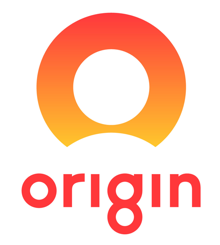
Origin Energy achieved a clean sweep of four-star ratings this year, including for overall satisfaction and customer service and advice.
One of Australia’s biggest energy providers, Origin also retails solar products. Origin Energy currently offers three main solar panel packages in its range and customers can match the right package to their energy needs by using the company’s free solar assessment tool. Some solar battery products are also on offer to interested customers and an interest-free payment plan may be available based on eligibility.

SolarHub scored four stars in almost all research categories this year. Its one exception was set-up cost where it received just three stars.
With a decade of service under its belt, SolarHub offers a variety of solar and energy products to households and businesses in Canberra, Melbourne and the south coast of New South Wales. Its main focus areas include solar panel and battery systems, electric vehicle charging, air conditioning, hot water systems and induction cooktops. It also partners with electricity and gas provider ActewAGL to offer its Smart Energy Hub for households interested in electrifying their home in the nation’s capital.
![]()
Arise Solar was rated four stars across almost all research categories this year, including for overall satisfaction and performance of solar system. It did manage to achieve a five-star rating for its set-up cost.
Arise Solar states it is a 100% Australian-owned company, delivering solar power systems to homes and businesses far and wide. It packs a lengthy 25-year manufacturer’s warranty on its systems and has flexible payment options available, including zero upfront deposits and interest-free payment plans. Arise Solar specialises in residential systems from 6.6 kilowatts (kW) to 20kW and commercial systems from 30kW to 100kW. It also offers solar panel cleaning and solar panel maintenance packages.

A new entrant into our solar installer ratings, Captain Green received four-star ratings in almost all research categories. The only category where its rating differed was customer service and advice provided, where it scored three stars.
Captain Green has been offering solar packages to households and businesses across Australia for over a decade. The installer claims to have installed over 270,000 panels during its time in the market and offers a number of pre-packaged solar products to customers. Outside of set packages, Captain Green also offers a customised package option to customers, which can be designed based on their energy usage and behaviours, roof orientation and price range.
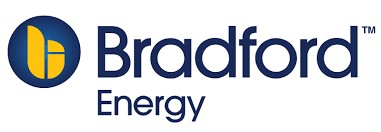
Bradford Energy scored three stars in all research categories in this year’s review.
Bradford Energy is one of Australia’s oldest and most well-known solar installation specialists, with over 80 years in the market. Previously, Bradford offered solar panels, storage systems, inverters and even monitoring tech, with its most popular systems coming in the form of bundles. However, the company has recently ceased to offer new installations, instead focusing on servicing and maintaining systems for existing customers.
Advertisement
Compare Solar Installer Quotes
Over the last 12 years SolarQuotes® has steadily built a network of heavily vetted solar installers. Get up to 3 free, no obligation quotes from highly-qualified installers.
It’s safe to say most of the brands that made it into our ratings have websites, but if you’re more the ‘pick up the phone’ type, we’ve compiled all the numbers we could find to get you started on your solar journey:

Kelseigh Wrigley covers Australia’s retail energy market, growing her industry specific expertise over the last two years. She holds a Bachelor of Journalism at the Queensland University of Technology and has contributed her skills to online publications Hunter & Bligh and local radio station 4ZZZ.
Meet the Editorial Team
Samantha Howse is Canstar Blue’s Consumer Research Specialist, coordinating the consumer research program behind our customer satisfaction awards across Canstar and Canstar Blue in Australia and New Zealand. Sam has earned a Bachelor of Business (Marketing) from Griffith University and, with seven years in market research and two years in marketing, she is experienced in survey design, implementation and analysis, coupled with an understanding of marketing principles and best practice.
Meet the Research TeamWith thousands of solar installers in the Australian market, it’d be impossible to name them all. Instead, we’ve compiled a list of some of the more well-known solar energy installers around the country that haven’t been included in this year’s review. Please note, there may be more solar installers available in your area.
If you are a beginner when it comes to installing solar there are a few things you’ll need to keep in consideration. The type of system you’ll be able to get will depend strongly on factors such as your roof size and style, household positioning and your personal budget. It’s your solar installer’s job to assess your roof and lay out your options in the form of a quote. And with most solar installers offering different options at different price points, it’s not always crystal-clear which installer to go for.
As part of our ratings report, we asked survey respondents to share what the biggest deciding factors were for them when picking their solar installer. We’ve listed these below:
A New Tech Energy Approved Seller is a provider who meets the requirements set out in the New Energy Tech Consumer Code (NETCC). This code is a set of standards designed to protect consumers when they are purchasing new energy tech such as solar panels, solar batteries, electric vehicle chargers and the like.
If an installer has this approval, it means that they have demonstrated that they meet the requirements of the NETCC and that it is committed to remaining compliant with the standards outlined. You can check whether your installer has this badge of approval by searching the NETCC database on its website.
The NETCC program is administered by the Clean Energy Council (CEC) and replaces the previous CEC Accreditation and CEC Approval in the solar market.
Best case scenario, your solar panel installer will provide you with all the information you could possibly need. Though, in some situations, it’s best to have a log of questions prepared to help you pick the right installer for you.
Choosing a solar installer can be hard for many reasons, a big one being that you’ll be relying on sometimes decades of service from the same company. Any good installer will conduct maintenance on your PV system during its life, whether that’s scheduled or necessary due to complications. So, what do you do if your solar installation company goes out of business? Here are some steps you should take:
Here are the previous winners of Canstar Blue’s Solar Installers Customer Satisfaction Award:
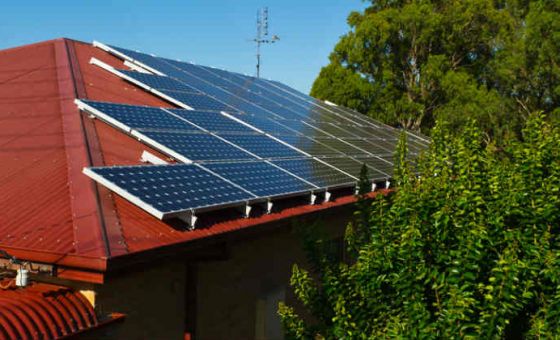
Best Solar Electricity Providers - April 4th
A guide to finding the best deal on solar. Canstar Blue compares feed-in tariffs from Australia’s leading energy retailers.
– Read more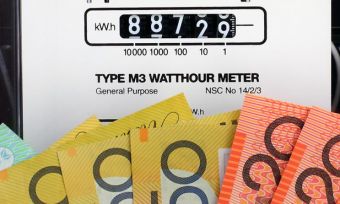
Best Solar Electricity Providers - April 4th
Keep up to date with new electricity plans, rates and discounts with Canstar Blue. We compare energy prices across NSW, QLD, VIC and SA.
– Read more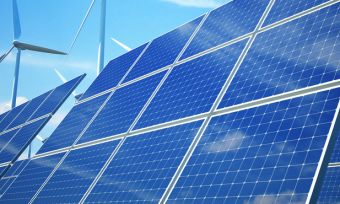
Best-Rated Electricity Providers for Business - February 27th
Many electricity providers would like to be seen as ‘green’, despite using non-renewable energy. We review Australia’s greenest energy providers.
– Read more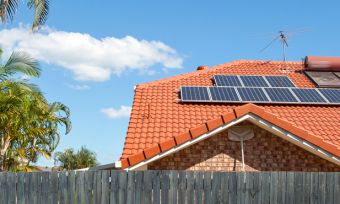
Best-Rated Solar Installers - October 1st
Between 2021 and 2023 LG Energy Solution Australia recalled some ESS Home Batteries bearing RESU serial numbers due to the risk of overheating. The Australian Competition and Consumer Commission advised consumers to check whether their …
– Read more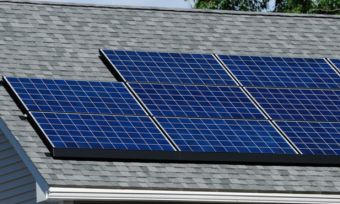
Best-Rated Solar Installers - September 27th
EnergyAustralia provides end-to-end solar solutions for households and businesses right across Australia. But is it the best fit for you?
– Read more